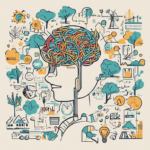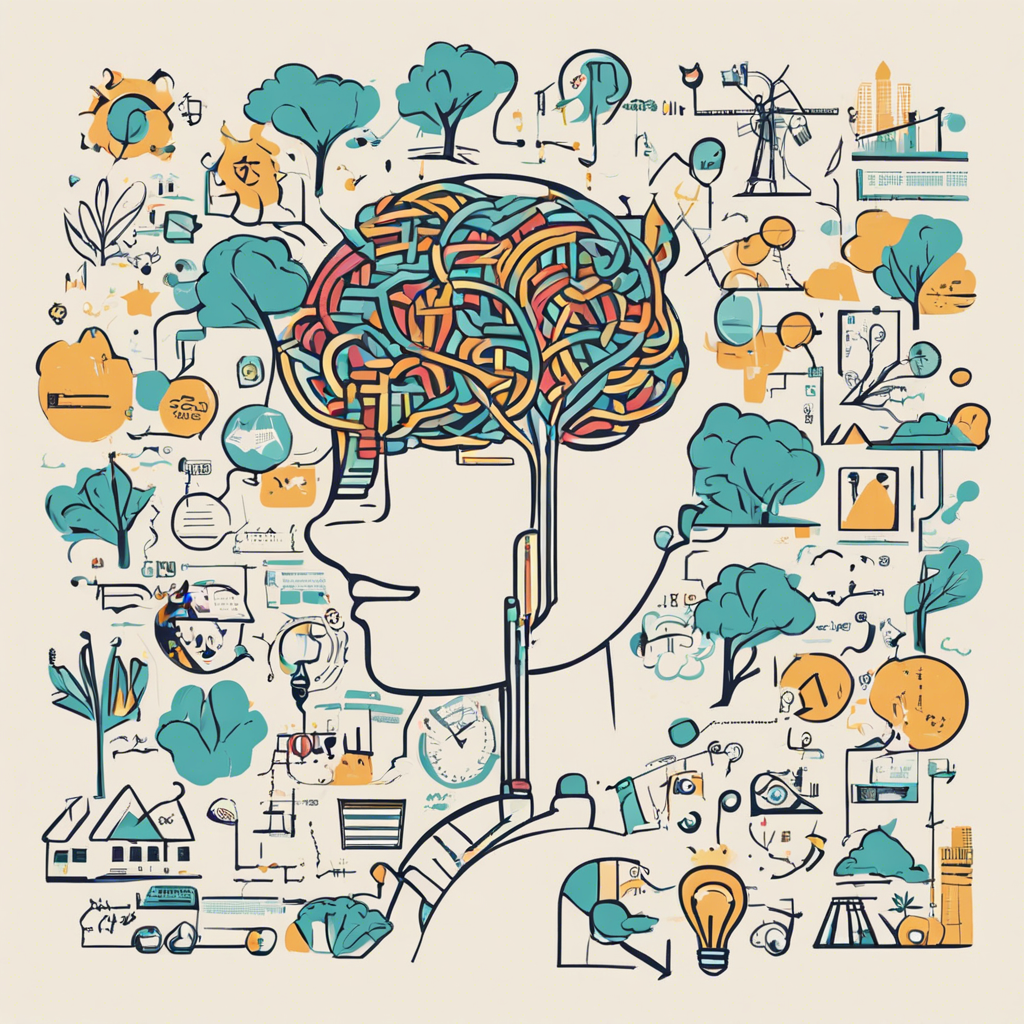In today’s fast-paced world, technical skills and knowledge alone are not enough to guarantee success. Emotional intelligence (EI) has emerged as a crucial factor that influences how we interact with others, handle stress, and make decisions. Defined as the ability to recognize, understand, and manage our own emotions and the emotions of others, emotional intelligence plays a vital role in fostering better relationships and achieving career success. This article explores the components of emotional intelligence, its significance in both personal and professional settings, and practical strategies to enhance your EI.
1. Understanding Emotional Intelligence
- Definition of Emotional Intelligence: Emotional intelligence encompasses five key components: self-awareness, self-regulation, motivation, empathy, and social skills. Together, these elements shape how we navigate our emotions and interactions with others.
- The Importance of EI: Research has shown that individuals with high emotional intelligence are more effective communicators, better leaders, and more successful in their careers. EI contributes to overall well-being and enhances relationships, making it an invaluable asset in both personal and professional contexts.
2. The Components of Emotional Intelligence
- Self-Awareness: This is the ability to recognize and understand your own emotions, strengths, weaknesses, and values. Self-aware individuals can accurately assess how their feelings affect their thoughts and behaviors.
- Self-Regulation: Self-regulation involves managing your emotions in a healthy way. It includes controlling impulsive feelings and behaviors, adapting to changing circumstances, and maintaining a positive outlook.
- Motivation: Individuals with high emotional intelligence are often intrinsically motivated. They set goals for themselves, remain committed to achieving them, and exhibit resilience in the face of challenges.
- Empathy: Empathy is the ability to understand and share the feelings of others. It allows individuals to connect with others on a deeper level and respond to their needs effectively.
- Social Skills: Strong social skills encompass effective communication, conflict resolution, teamwork, and building rapport with others. These skills are essential for fostering positive relationships.
3. Emotional Intelligence in Personal Relationships
- Building Stronger Connections: EI enhances communication and understanding in relationships. Individuals with high emotional intelligence can express their feelings and understand the emotions of their partners, friends, and family members, leading to deeper connections.
- Resolving Conflicts: Emotional intelligence equips individuals with the tools to manage conflicts constructively. By understanding the emotions involved in a disagreement, they can approach conflicts with empathy and open-mindedness, fostering healthier resolutions.
- Enhancing Communication: High EI individuals are skilled communicators. They can express their needs clearly while also being attentive listeners, creating a supportive and nurturing environment in their relationships.
4. The Role of EI in Career Success
- Leadership Skills: Emotional intelligence is a key attribute of effective leaders. Leaders with high EI can inspire and motivate their teams, navigate challenges, and foster a positive work environment.
- Collaboration and Teamwork: In the workplace, emotional intelligence enhances collaboration. Employees with high EI are better at working in teams, understanding group dynamics, and resolving conflicts, which contributes to a more harmonious workplace.
- Adaptability to Change: The ability to manage emotions during times of change is crucial in today’s dynamic work environments. Individuals with high emotional intelligence are more adaptable, allowing them to thrive in challenging situations.
5. Developing Self-Awareness
- Reflective Practices: Engaging in regular self-reflection can enhance self-awareness. Journaling, mindfulness, and meditation are effective practices that help individuals understand their emotions and triggers.
- Seeking Feedback: Requesting feedback from trusted friends, family members, or colleagues can provide valuable insights into how you come across to others. This external perspective can help you identify areas for improvement.
- Identifying Strengths and Weaknesses: Take time to evaluate your strengths and weaknesses. Understanding your unique qualities enables you to leverage your strengths and work on areas that need improvement.
6. Enhancing Self-Regulation
- Managing Stress: Developing healthy coping mechanisms for stress is essential for self-regulation. Techniques such as deep breathing, exercise, and time management can help you maintain emotional balance.
- Practicing Mindfulness: Mindfulness practices allow individuals to stay present and aware of their emotions without judgment. By practicing mindfulness, you can learn to respond to situations thoughtfully rather than reacting impulsively.
- Setting Boundaries: Establishing boundaries in personal and professional relationships can help manage emotions and reduce stress. Clearly communicating your needs fosters healthy interactions with others.
7. Fostering Motivation
- Setting Personal Goals: Establishing clear, achievable goals helps individuals stay motivated and focused. Break down larger goals into smaller, actionable steps to maintain momentum.
- Celebrating Achievements: Recognizing and celebrating your accomplishments, no matter how small, reinforces motivation and encourages continued effort.
- Staying Positive: Maintaining a positive mindset can fuel intrinsic motivation. Practice gratitude and focus on the positive aspects of your life and work to enhance motivation.
8. Cultivating Empathy
- Active Listening: Empathy begins with listening. Practice active listening by giving your full attention to others, avoiding interruptions, and reflecting on what they say to show understanding.
- Putting Yourself in Others’ Shoes: Make a conscious effort to consider situations from others’ perspectives. This practice can enhance your understanding of their emotions and needs.
- Engaging in Compassionate Acts: Acts of kindness and compassion can deepen your empathetic responses. Volunteering, helping others, and practicing gratitude can strengthen your ability to connect with others emotionally.
9. Improving Social Skills
- Effective Communication: Focus on improving your communication skills by being clear, concise, and respectful. Practice assertiveness to express your thoughts and needs while being considerate of others’ feelings.
- Building Relationships: Take the initiative to connect with others. Attend networking events, join groups, or engage in social activities to strengthen your social skills and expand your network.
- Conflict Resolution Skills: Developing conflict resolution skills is essential for maintaining positive relationships. Practice addressing conflicts calmly and constructively, seeking win-win solutions.
10. The Long-Term Benefits of Emotional Intelligence
- Improved Mental Health: High emotional intelligence is linked to better mental health outcomes. Individuals with strong EI are more resilient and better equipped to handle stress, leading to reduced anxiety and depression.
- Enhanced Career Opportunities: Employers increasingly value emotional intelligence in potential hires. Developing your EI can open doors to new career opportunities and advancement.
- Greater Life Satisfaction: Cultivating emotional intelligence contributes to overall life satisfaction. By fostering positive relationships and achieving career success, individuals with high EI often lead more fulfilling lives.
Conclusion
Emotional intelligence is a vital skill that influences our relationships and career success. By understanding its components and actively working to develop EI, individuals can enhance their ability to connect with others, navigate challenges, and thrive in their personal and professional lives. As you embark on the journey to improve your emotional intelligence, remember that it’s a continuous process that requires self-reflection, practice, and commitment. By investing in your emotional intelligence, you are not only enriching your own life but also positively impacting those around you.










